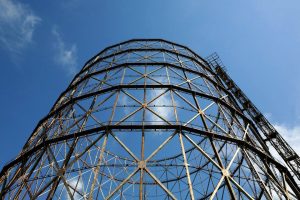The energy crisis that was triggered by the Russian war in Ukraine has led European power markets to unprecedented levels of prices and stress. It has also led to wide ranging policy interventions and calls for reforms of the wholesale electricity market design.
The course gathers a group of senior practitioners to discuss and share experiences about both the economic and political forces that drive the debate on the evolution of power and carbon markets to enable and support the decarbonisation of the power sector.
The course builds on key economic principles and an interactive approach to discuss current policy debates on the reform of electricity and carbon markets, with a particular focus on the high penetration of Variable Renewable Energy sources (VREs), and recent evolutions in Europe following high energy prices resulting from the war in Ukraine.
The development of wholesale electricity markets has started in the 1990s, to unleash the benefits of competition onto the previously monopolistic and regulated electricity industry. Since the early 2000s, fighting climate change has risen on top of the political agenda in Europe (and to a lesser extent in other regions). Green electrification of the economy, i.e., electrification of final energy demand and decarbonization of electricity generation, mostly through VREs, is a necessary first step to achieve the EU objective of Net CO2 neutrality by 2050. Facilitating large-scale VRE penetration has been added as an objective of electricity policies. In addition, a CO2 emissions market (EU Emissions Trading System, EU ETS) has been created, to induce emitters to abate their emissions (which is economic as soon as the price of an emission exceeds its abatement cost).
By and large, these policies have been successful: European CO2 emissions have been reduced to 2.7 Gt in 2002 from their 2006 peak of 3.7 Gt, the European wholesale spot electricity market is integrated and reasonably competitive, guaranteeing that at every hour European electricity demand is served (almost) at the lowest possible cost, and VREs represent a significant share of electricity generation in most countries.
Policy makers today face a challenging set of circumstances:
Designing electricity markets to simultaneously meet these challenges is a daunting task. This course aims to provide participants with a profound yet practical understanding of the necessary trade-offs involved.
Before the course, participants will receive access to an online platform where they will review materials on the theory of power markets and carbon pricing. The residential part will then focus on a range of lectures and group activities to discuss and deepen the understanding of the key economic concepts and how they confront in practice with policy makers’ objectives.
The FSR Executive Course directed by Thomas-Olivier Léautier (TSE and TotalEnergies) and Fabien Roques (FSR, University Paris Dauphine and Compass Lexecon) discusses the micro-economics of wholesale power and carbon markets and their implications for the restructuring of European electricity markets.
Take part in this course by the Florence School of Regulation and find answers to these burning questions:
Impact of the current crisis
Fundamentals
This residential course will be divided in 2 parts:
Module 1 (30 September – 13 October 2024): Theory of power markets and carbon pricing (Online)
Readings and video lectures to be completed before the residential course
Module 2 (14-15 October 2024): Practice – Power markets and carbon trading in practice (Residential)
Residential lectures in Florence on the reform of the European electricity market architecture.
Theory: The fundamental concepts of micro-economics of wholesale electricity markets
Long term supply and demand balance in electricity markets
Designing wholesale physical electricity markets
Market design and system operation
Market power, price caps, and missing money
Markets, policies, and hybrid models
Support mechanisms for clean technologies
Emissions trading and the ETS
After the training participant will be able to:
Online event: The European electricity market reform: is a new target model emerging?
2 July 2-3pm CEST
Join your course directors, Thomas-Olivier Leautier and Fabien Roques, to analyse some of the key issues that will be discussed during the course and that will shape the evolution of wholesale electricity markets in the coming years:
Registration is open to all professional from the energy sector. The training is designed for experienced managers and targets professionals from energy companies, both utilities, TSOs and DSOs, NGOs, and representatives from National and European Regulatory Authorities, but also academics and researchers.
Please note that the training course is given in English and basic knowledge of engineering or economics is highly recommended.
Please do note that this is an Executive Course and only participants that meet the specific target requirements will be admitted. Participants are required to enclose to their registration form a short CV (max. 2 pages). Participants will receive a response regarding their admission two weeks after the registration deadline.
At the end of the course, participants will receive a Certificate of Participation.
Each year, the Florence School of Regulation – Energy and Climate (FSR Energy & Climate) awards scholarships for a wide variety of training courses targeting a broad audience of professionals and academics.
Applications will be assessed by a Selection Committee of FSR members on a yearly basis. The successful candidates will be informed after February 2024 and will be provided with all relevant information on how to enroll in the online course or residential training of their choice.
Send your application by 28 January 2024.
Fees
Contacts: fsr.conferences@eui.eu
The course fee includes:
Please note that the course fee will only cover one dinner and lunch, not travel and accommodation costs.
Cancellation policy
Paid registration fee is non-refundable. However, registrant substitution may be made up to 20 days before the start date of the course.
Please arrange your travel and accommodation as soon as possible as Florence is very popular in this period.
Please note that the course fee does not cover travel and accommodation costs.
This is a fully residential training course, and classes will be held in Florence on 14-15 October 2024.
By submitting your application, you are committing to pay the corresponding fee.
Event venue
Sala Europa
Villa Schifanoia,
Via Giovanni Boccaccio 121,
I-50133 Firenze – Italy
Local transportation
Villa Schifanoia is easily reachable by taxi from Florence centre or from Fiesole (about 20€) and from Florence Airport (about 35€).
If you prefer public transport (ticket 1,50€ to be bought in official ticket offices, machines and authorised retailers that display the Autolinee Toscane sticker):
Or:
Learn how to master electricity markets and key issues around their reform. This course gathers a group of senior practitioners to discuss and share experiences about both the economic and political forces that drive the debate on the evolution of power and carbon markets to enable and support the decarbonisation of the power sector.

This FSR-ACER residential course in Florence covers the scope of the EU Regulation on Wholesale Energy Market Integrity and Transparency (REMIT) and the way in which it is implemented. Mapping…

The implementation of the EU Gas Network Codes (NC) requires an important effort from many participants of the market and sound competence and specialised resources. Join us to gain comprehensive knowledge about…

All you need to know about the power sector and power systems around the world Power system regulation is never at a rest, and this is particularly true for the…

In this new 2-day residential course from the Florence School of Regulation, we provide an immersion in the legal and technical framework of the European hydrogen sector. Over the two…

Clean Molecules: Hydrogen, Biogas, Biomethane, Synthetic Gas Within the EU Green Deal vision and framework, renewable, low-carbon, and even emission-negative gases have a crucial role to play in decarbonising the…

Learn the fundamental regulatory principles of the electricity and gas sectors through hands-on, real case activities and examples with instructors from national regulatory authorities from Europe and North America, the…

Learn about the fundamental regulatory principles of the transport sector through hands-on activities based on real cases and examples with instructors from academia, national regulatory authorities and ministries, the European…

Crafting research with impact on energy policy and regulation LARS is a residential training addressing researchers with modeling skills who are keen to support the energy policy and regulatory debate.…

EU Electricity Network Codes & the Clean Energy Package Enter the world of electricity markets in Europe ‘Evolution of electricity markets in Europe’ is an 9-week online course in collaboration…
To meet, discuss and learn in the channel that suits you best.